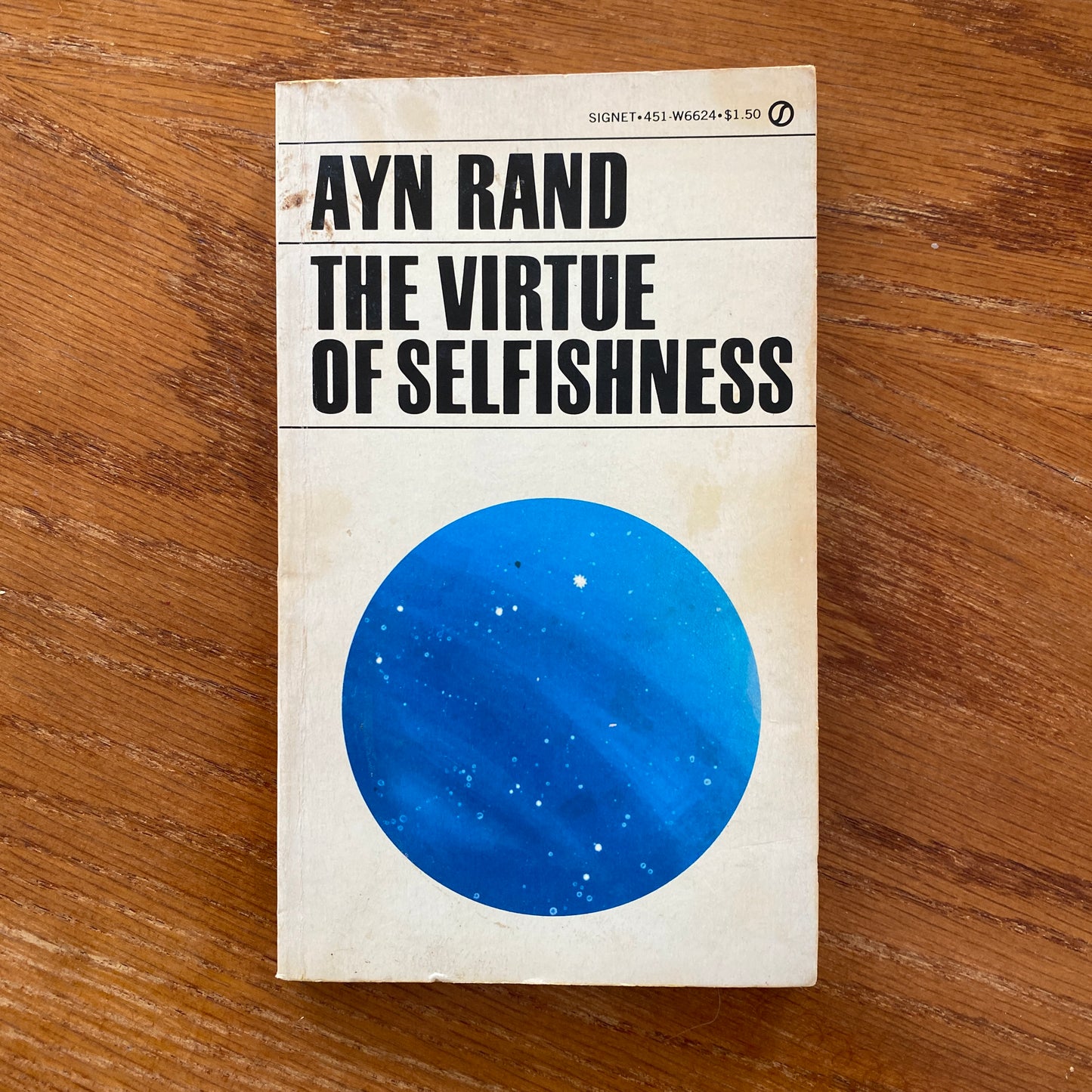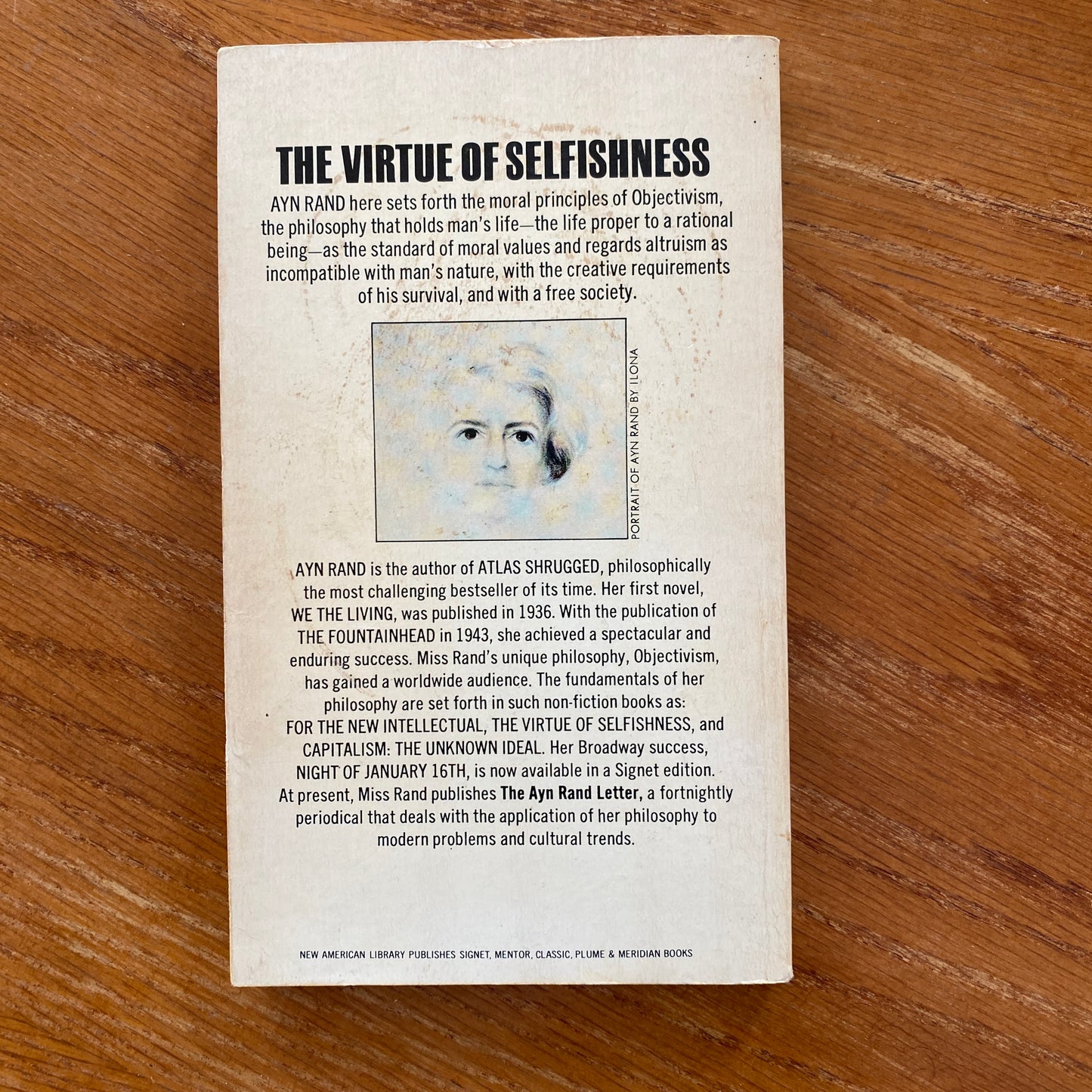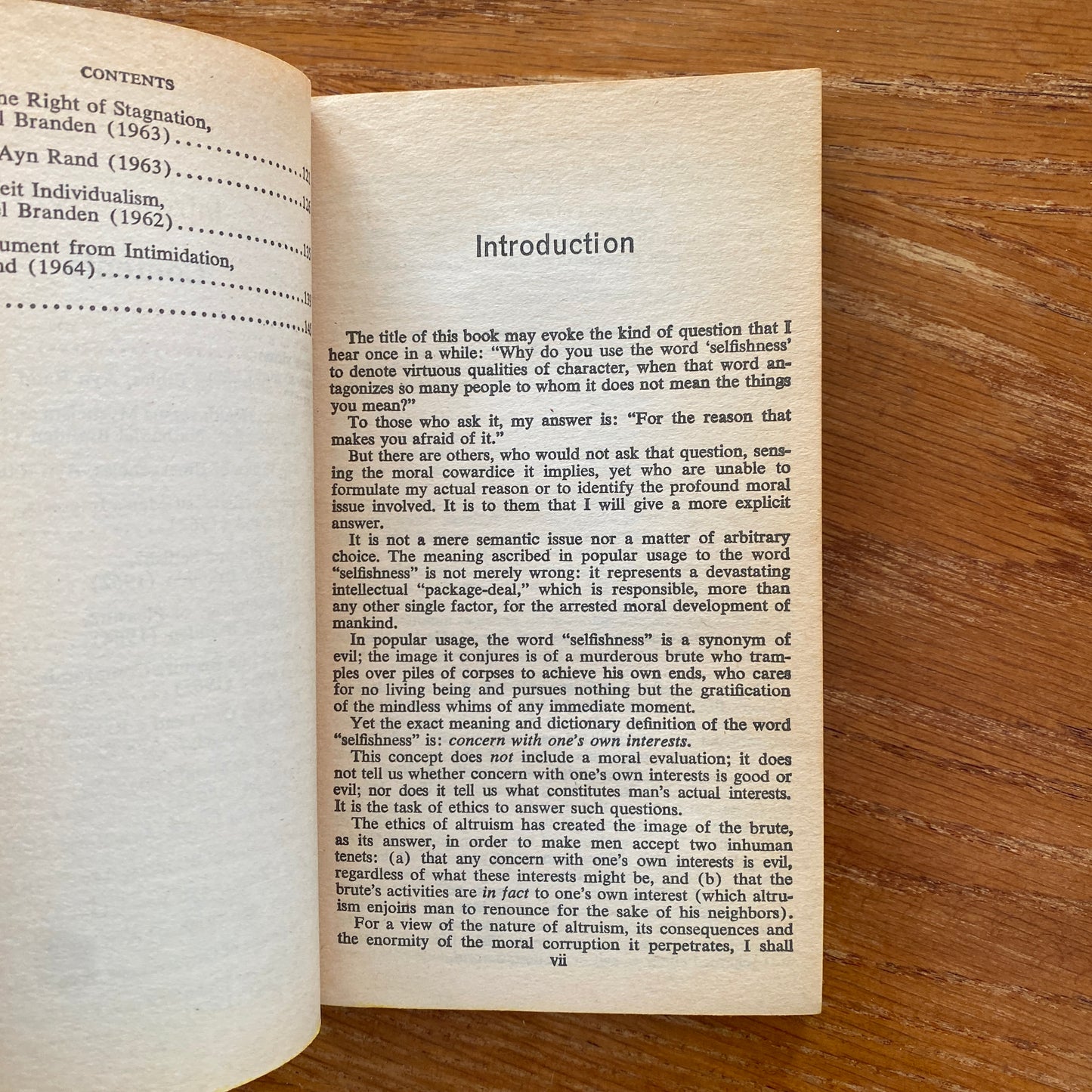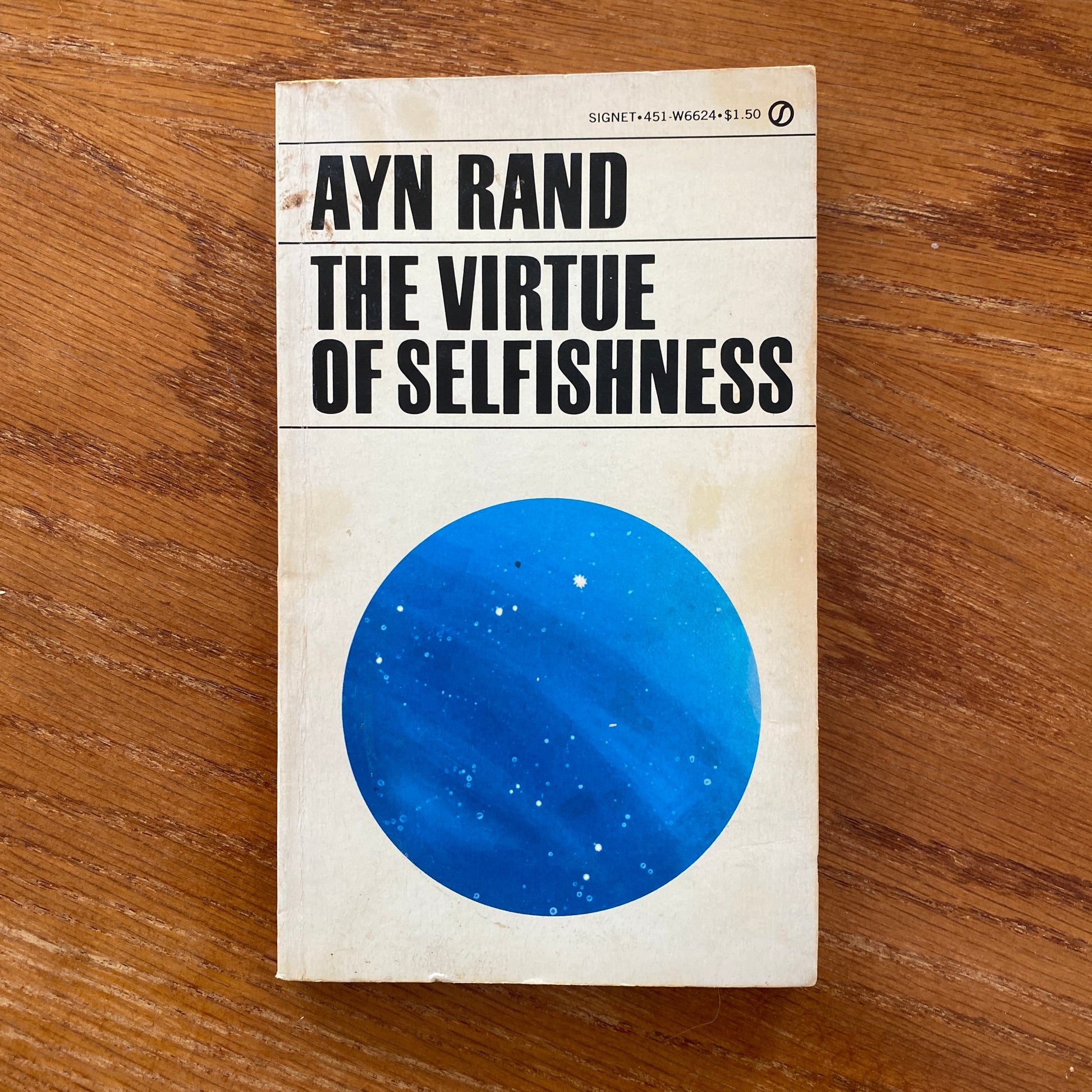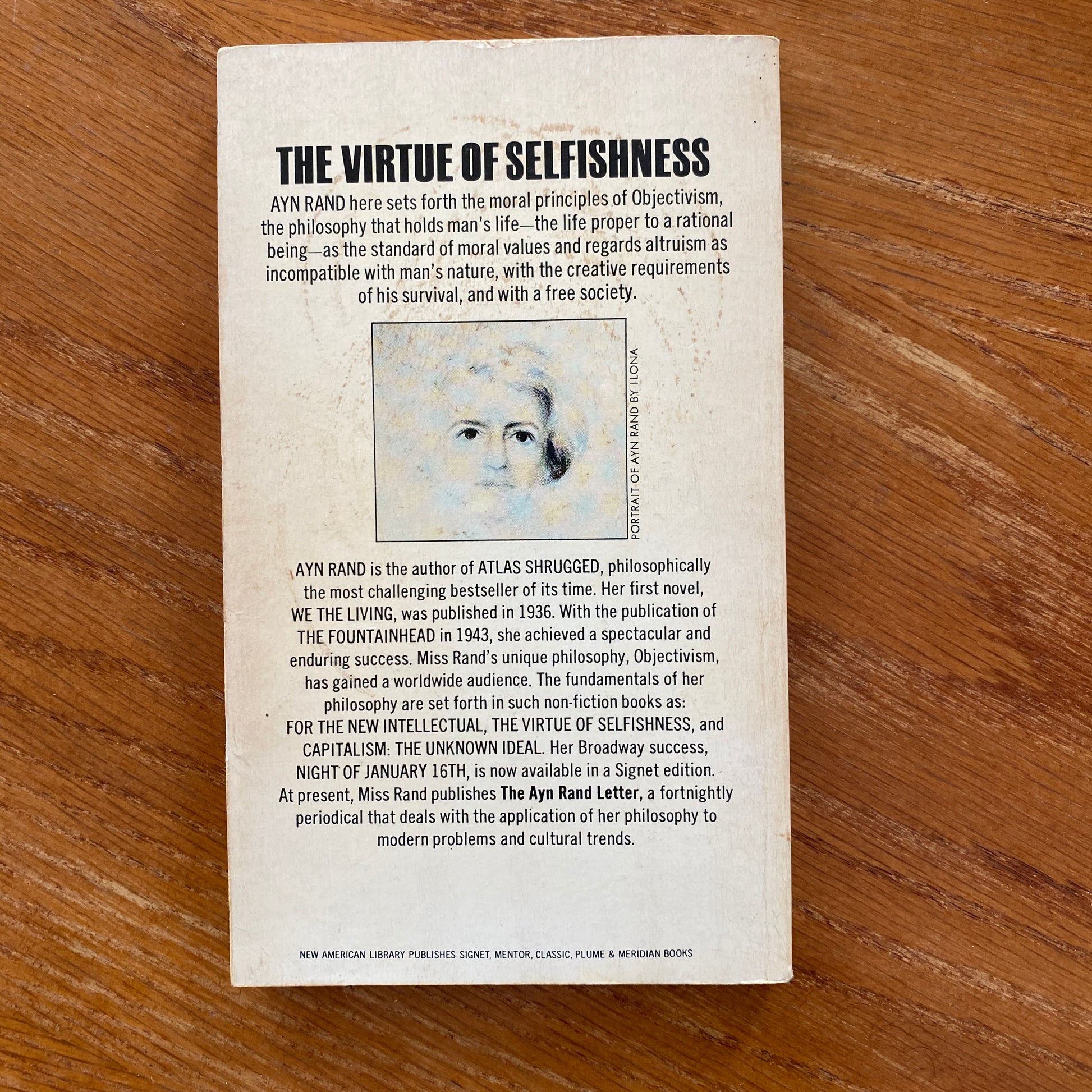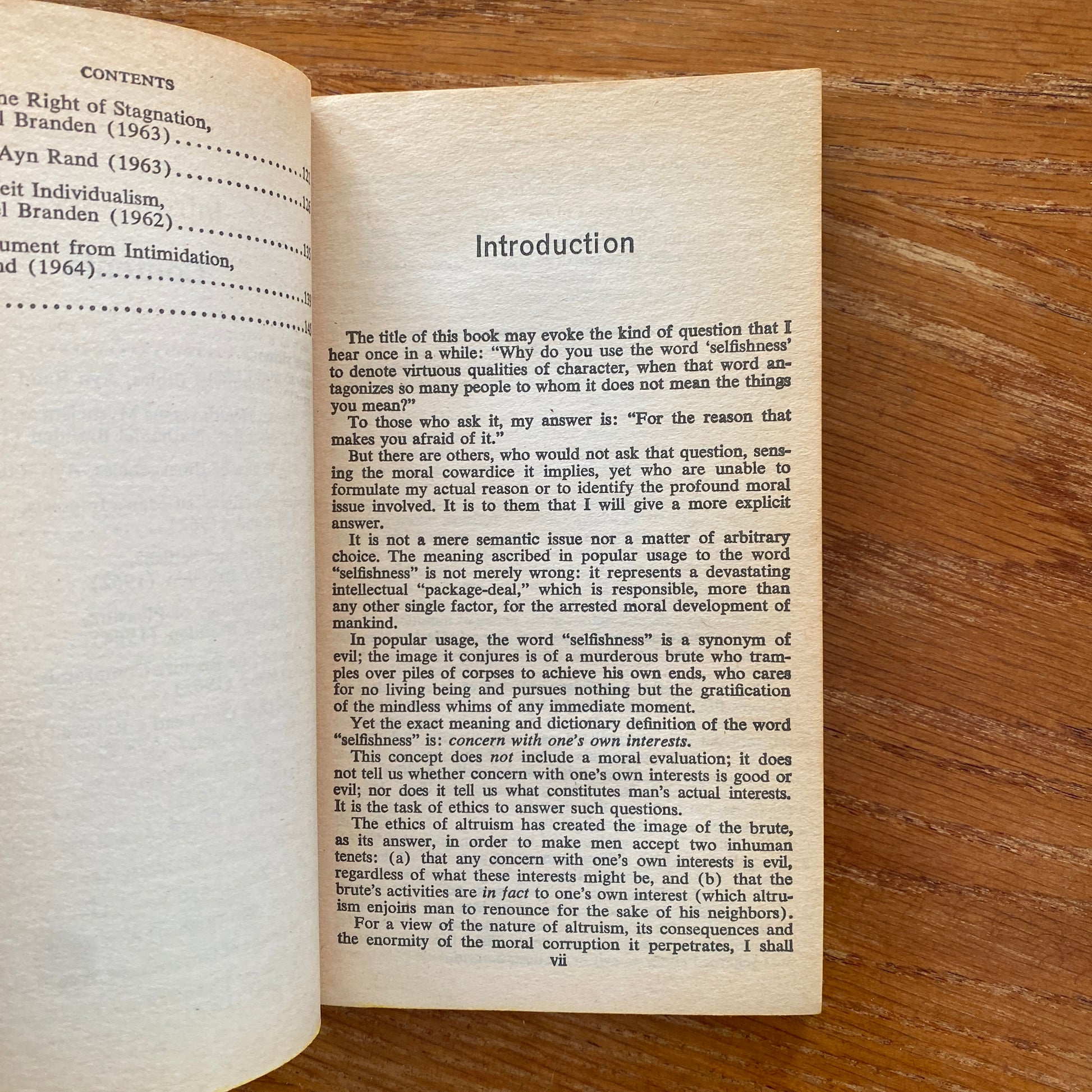Rumorbooks
The Virtue Of Selfishness - Ayn Rand
The Virtue Of Selfishness - Ayn Rand
Couldn't load pickup availability
"The Virtue of Selfishness" by Ayn Rand is a collection of essays that argues for ethical egoism as the only rational and moral way to live. Published in 1964, the book was controversial at the time for several reasons.
One reason was that Rand's philosophy of objectivism, which she outlined in her previous novels "The Fountainhead" and "Atlas Shrugged," had already garnered controversy and criticism. Objectivism rejected the notion of self-sacrifice and emphasized the importance of individualism and reason, which was seen by some as being at odds with traditional morality and religious values.
Additionally, Rand's rejection of altruism as a moral value was seen by many as being callous and selfish. The idea that people should pursue their own self-interest above all else, and that doing so would ultimately benefit society as a whole, was controversial and counter to the prevailing belief in the importance of community and social responsibility.
Furthermore, Rand's views on capitalism and the role of government were also controversial. She believed that capitalism was the only moral economic system, and that government intervention in the economy was a form of coercion that violated individual rights.
Overall, "The Virtue of Selfishness" challenged many widely held beliefs about morality, community, and the role of government in society, and its controversial ideas continue to spark debate and discussion today.
Ayn Rand was a Russian-American writer and philosopher who developed a philosophical system called Objectivism. She believed that reason and self-interest were the key to human happiness and advocated for laissez-faire capitalism as the best political system for individual freedom and prosperity. Rand's novels, including "The Fountainhead" and "Atlas Shrugged," have become cultural touchstones for advocates of free-market capitalism, individualism, and limited government.
Share
